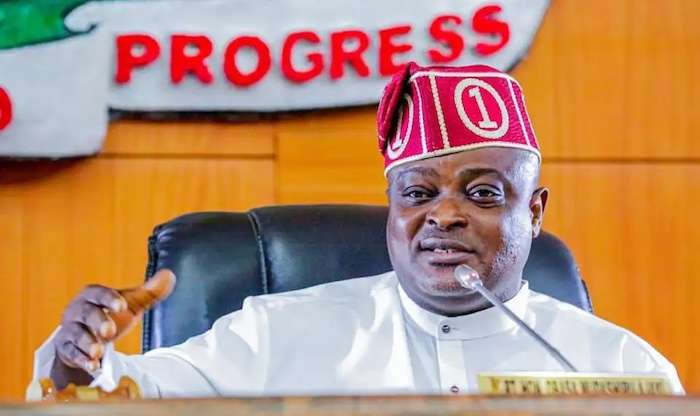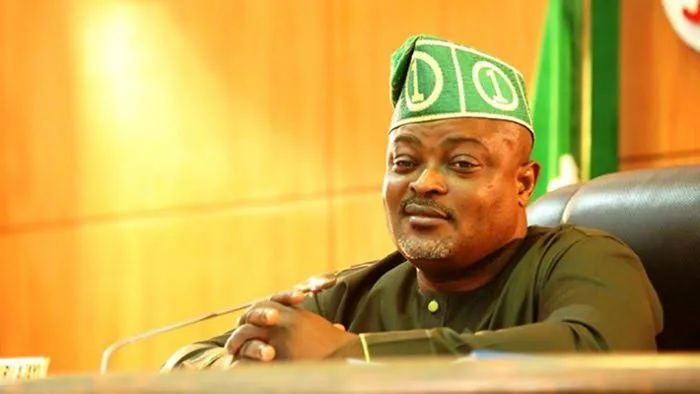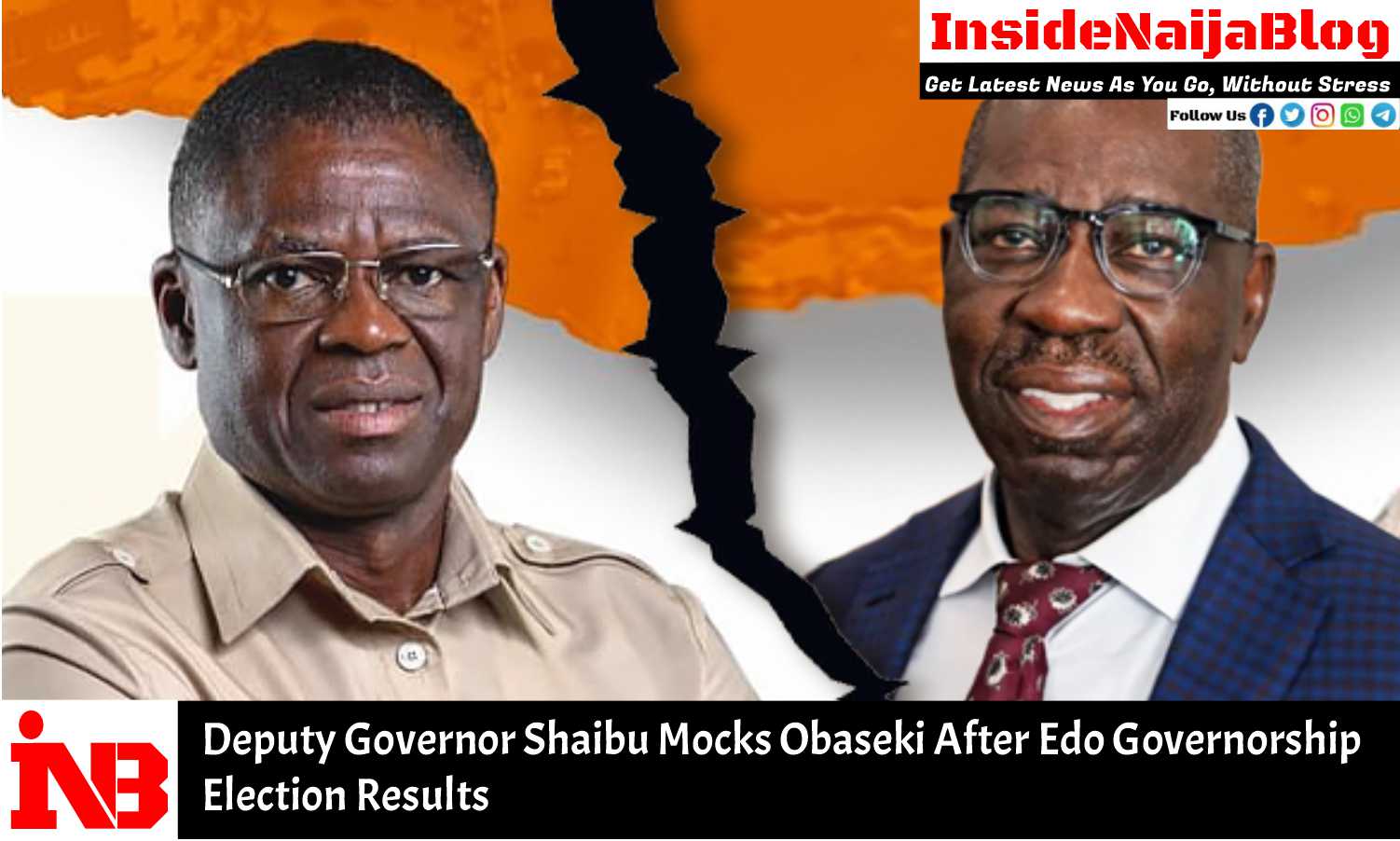In a dramatic and tumultuous turn of events, the recent governorship election in Edo State has ignited fierce debates and accusations of electoral malpractice. Just a day after the Independent National Electoral Commission (INEC) proclaimed Senator Monday Okpebholo of the All Progressives Congress (APC) as the winner, the Peoples Democratic Party (PDP) swiftly declared its intention to challenge the results in court, branding the election a theft of their “mandate.” This unfolding drama not only raises questions about the integrity of the electoral process but also highlights the fragility of Nigeria’s democratic framework.
The backdrop of this controversy was painted by the civil society group Yiaga Africa, which monitored the election and claimed it failed an integrity test. They reported various irregularities, leading the Centre for Democracy and Development (CDD) to call on INEC to reassess the uploads on its Result Viewing Portal (iReV) due to significant discrepancies. These developments have thrown the legitimacy of the election results into serious doubt.
During a press briefing in Abuja, the PDP’s acting National Chairman, Ambassador Umar Damagum, urged the people of Edo to remain resolute and supportive as the party prepares to embark on a legal battle to reclaim what they believe is their rightful victory. “We cannot overrule a situation where justice will be dispensed, but we will put the judiciary under scrutiny before the eyes of Nigerians,” he asserted, conveying a deep sense of urgency and concern for the state of democracy in Nigeria. Damagum painted a grim picture, suggesting that the recent electoral outcomes are indicative of a larger trend of state-sponsored coercion undermining the democratic process.
Labour Party candidate Olumide Akpata also joined the fray, characterizing the election as a mere “transaction” rather than a genuine democratic exercise. In a compelling statement, he condemned the actions of both the APC and PDP, accusing them of orchestrating a scheme rife with voter intimidation and result manipulation. “What transpired on September 21, 2024, was not an election but a transaction,” he stated, highlighting the complicity of certain members within his own party. Akpata has since submitted the election results to legal experts for forensic analysis, aiming to uncover the truth behind the alleged electoral fraud.
According to INEC’s official tally, Okpebholo was declared the governor-elect after amassing 291,667 votes, while PDP’s Dr. Asue Ighodalo received 247,566 votes, and Akpata trailed with 22,763 votes. The celebratory messages from various stakeholders, including the Federal Executive Council (FEC) and numerous state governors, have done little to quell the outcry from the PDP, which firmly rejected the results, arguing they do not reflect the genuine will of the Edo people.
The PDP’s denunciation of the election’s integrity centers on claims of collusion between the APC and biased INEC officials, who allegedly manipulated results during the collation process. Damagum articulated a compelling narrative of state capture, urging Nigerians to unite against what he describes as an attack on their democratic rights. He emphasized the importance of judicial accountability, asserting that without a functioning judicial system, the very fabric of the nation is at risk.
In response to the allegations, Yiaga Africa asserted that while key processes such as accreditation, voting, and counting adhered to electoral standards, the results collation was marred by interference and manipulation. They noted significant discrepancies between official results and their own independent estimates, raising serious concerns about the credibility of the election outcome. Their report detailed instances of disruption in various local government areas, pointing to a systemic failure that demands urgent investigation.
Similarly, the CDD echoed these concerns, stressing that INEC must address the discrepancies between its announced results and independent observations. The organization also called for swift action against those engaged in vote-buying schemes, asserting that such practices have severely compromised the integrity of the electoral process. Despite reports of violence and technical glitches, they observed that the overall voting process was relatively peaceful, though marked by intimidation.
As the political landscape continues to unfold, governors from various states have publicly congratulated Okpebholo, framing his victory as a testament to the APC’s commitment to democracy. Governor Biodun Oyebanji of Ekiti State heralded the outcome as a clear expression of the people’s will, while Governor Dapo Abiodun of Ogun State praised the peaceful conduct of the election, suggesting it reflects a maturation of Nigeria’s democratic principles.
Contrasting these celebratory sentiments, prominent figures such as former Anambra State governor Peter Obi have raised alarm, labeling the election a blatant example of “state capture.” Obi urged those in authority to recognize the damaging implications of undermining the electoral process, warning that a flawed leadership recruitment system could ultimately lead to the nation’s downfall. His remarks underscore a growing sentiment among critics who believe the electoral process requires significant reform to restore public trust and integrity.
In conclusion, the Edo State governorship election has sparked a storm of controversy and debate over its legitimacy, with the PDP gearing up for a legal confrontation and civil society groups calling for thorough investigations into alleged electoral malpractice. This situation serves as a critical reminder of the challenges facing Nigeria’s democracy, emphasizing the urgent need for reforms to ensure that the true will of the people is reflected in future elections. As the nation watches closely, the outcome of this saga will likely have far-reaching implications for the political landscape in Nigeria.




